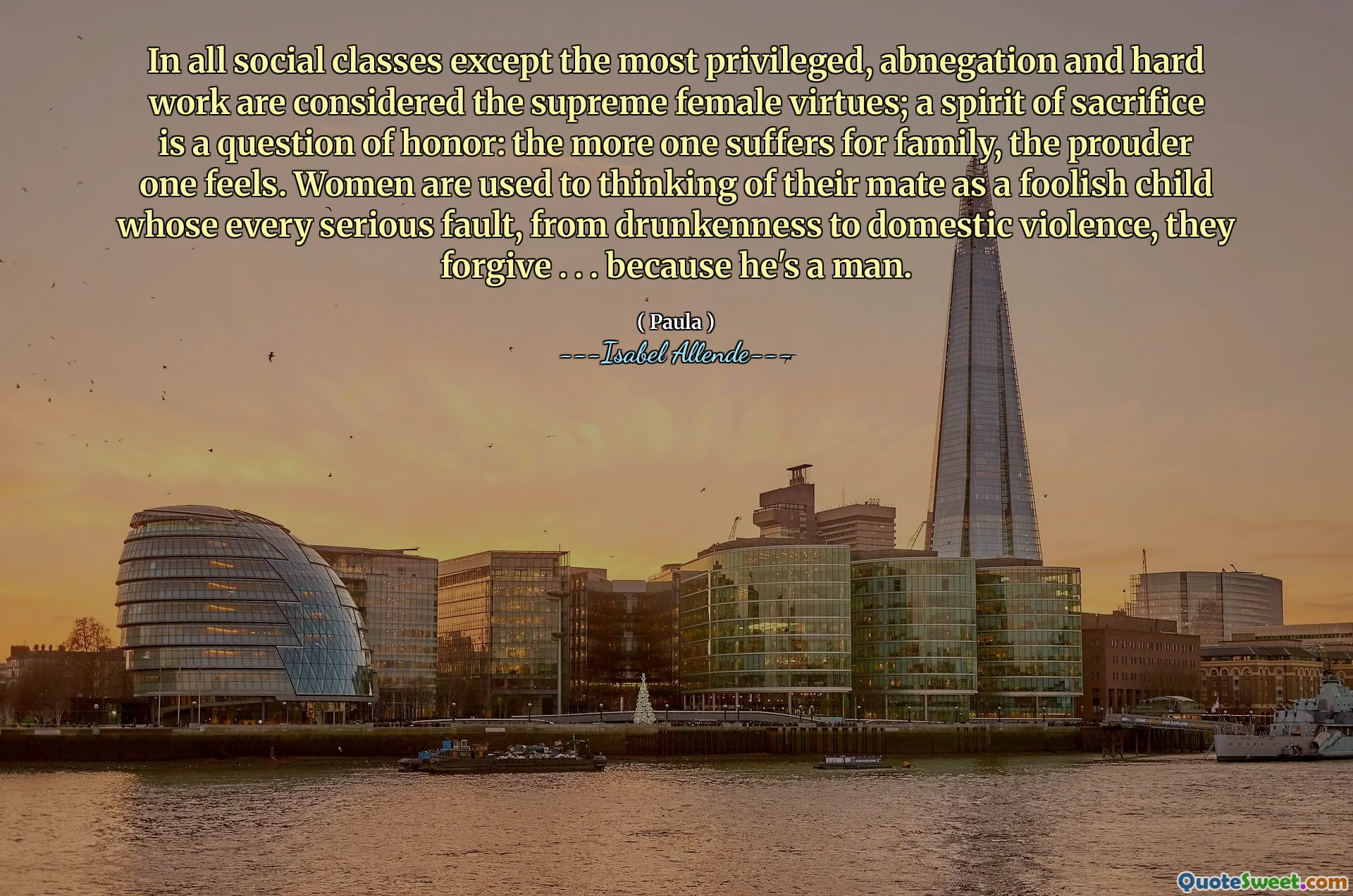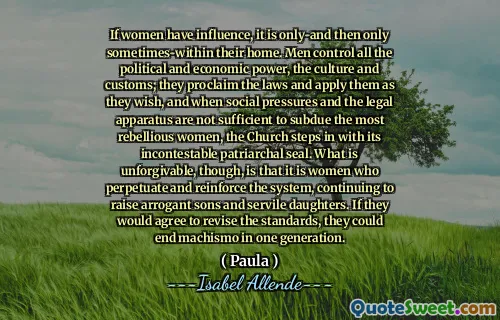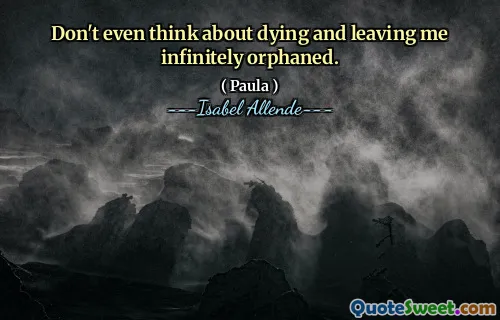
In all social classes except the most privileged, abnegation and hard work are considered the supreme female virtues; a spirit of sacrifice is a question of honor: the more one suffers for family, the prouder one feels. Women are used to thinking of their mate as a foolish child whose every serious fault, from drunkenness to domestic violence, they forgive . . . because he's a man.
This quote poignantly exposes the ingrained societal expectations and gender roles that persist across most social classes, except the most privileged. It highlights how women are conditioned to value self-sacrifice and hard work, often at the expense of their own well-being, as virtues tied to their identity and honor. The portrayal of women feeling pride in their suffering for family reveals a deeply troubling normalization of endurance over personal happiness or justice.
Moreover, the quote touches on a pervasive attitude toward men and relationships—where women are expected to overlook their partner's serious faults like drunkenness and domestic violence, excusing such behavior simply because "he's a man." This acceptance perpetuates cycles of abuse and undermines the agency and dignity of women. It reflects a systemic imbalance in power and emotional labor within relationships, where the male counterpart is infantilized and simultaneously given unchecked leniency.
The insight resonates strongly in discussions about patriarchy, gender inequality, and social class dynamics. It compels us to critically examine how cultural narratives shape the roles individuals are expected to play and the sacrifices deemed acceptable or even honorable. It also raises urgent questions about the need for societal change—toward equality, accountability, and the value of mutual respect in interpersonal relationships. Isabel Allende's observation thus serves as a powerful indictment of cultural norms that inhibit true freedom and equality for women.








